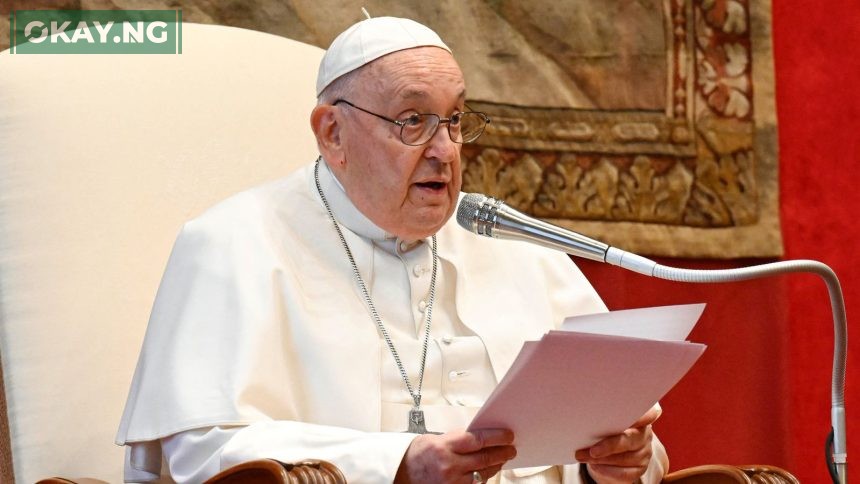Pope Francis has expressed confidence that over time, those who criticize his decision to allow blessings for same-sex couples will come to understand it.
However, he made an exception for Africans, referring to them as a “special case” due to the negative perception of homosexuality rooted in cultural perspectives on the continent.
In an interview with the Italian newspaper La Stampa, published on Monday, Pope Francis acknowledged that there are vehement protests against his decision, primarily from small ideological groups.
He pointed out that Africans, in particular, view homosexuality negatively from a cultural standpoint and do not tolerate it.
“Those who protest vehemently belong to small ideological groups. A special case are Africans: for them homosexuality is something bad from a cultural point of view, they don’t tolerate it. But in general, I trust that gradually everyone will be reassured by the spirit of the ‘Fiducia Supplicans’ declaration by the Dicastery for the Doctrine of the Faith: it aims to include, not divide,” Pope Francis stated.
The ‘Fiducia Supplicans’ (Supplicating Trust) document, released by the Vatican last month, allowed blessings for same-sex couples but clarified that such blessings should not be part of regular church ceremonies or linked to civil unions or weddings. The Vatican maintained its traditional stance on marriage, defining it as between a man and a woman.
Last week, Pope Francis seemed to recognize the resistance generated by the document, especially in Africa, where same-sex activity can have severe consequences, including imprisonment or capital punishment. He emphasized that when blessings are given, priests should consider the context, sensitivities, and the most appropriate ways to do it.
The Catholic Bishops Conference of Nigeria, in response to the Fiducia Supplicans, announced that Catholic churches within the country would not perform blessings for same-sex unions. They stated that such actions would go against God’s law, the teachings of the Church, the laws of the nation, and the cultural sensibilities of the people.
“The Declaration reinforces the truth about God’s mercy. For one to willingly ask for a blessing demonstrates one’s trust in God and the desire to live according to God’s commandments,” the bishops said in a statement, emphasizing the importance of seeking God’s grace and mercy while remaining open to conversion.












